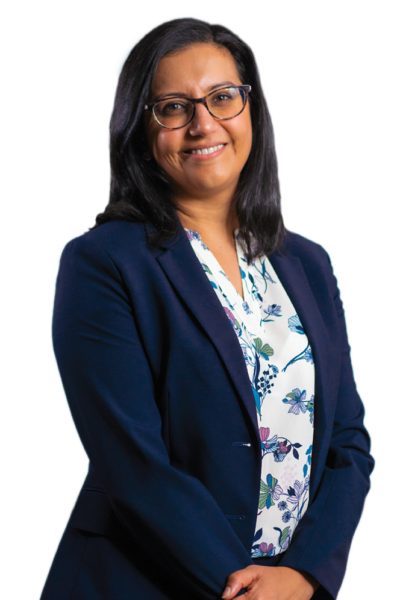Family Practice
27
Jun
2024
By Diane Peters
Growing up around the corner from Humber River Health in the Falstaff community, Dr. Bilal Negash has fond memories of his childhood. “It’s a fantastic place – I loved riding my bike in the neighbourhood, playing soccer and meeting with friends,” says Dr. Negash, who was born at the old Humber River Regional Hospital and still resides in the area.
Inspired by his parents’ careers – they’ve both worked at Humber as nurses for two decades – he always knew he would also go into medicine. “My dad was going through medical school in Ethiopia before he came to Canada. I’m following in his footsteps,” he adds.
Known as a “primary care desert,” Humber’s catchment was identified in a 2018 report as having one of the highest needs for primary care in the province and among the lowest percentages of people with a family doctor. “There’s a huge need in northwest Toronto,” explains Dr. Negash.
While completing medical school, he discovered that Humber was opening the new Schulich Family Medicine Teaching Unit (FMTU) and offering residencies through the University of Toronto (U of T). The program instantly became his first choice for his own family medicine residency. It was the perfect opportunity to give back to the people and place that raised him.
“I always knew I would go into family medicine,” he says. “I saw how important family doctors were to the community.” Since its opening in April 2023, the Schulich FMTU is committed to training future doctors like lead resident Dr. Negash in comprehensive family medicine, as well as filling a serious care gap in the community.
Many of his patients have not had access to a physician in years. Appointments are filled with cancer screening catch-up, dealing with foot infections from poorly controlled diabetes and getting basic blood tests to look for other underlying problems.
“So many people do not have a family doctor, which is the gateway to the healthcare system. They often come in with advanced illnesses and need an introduction to how the system works,” says Dr. Negash. If a patient needs to see a surgeon or cardiovascular specialist, for instance, he’ll guide them through the next steps.
MORE LOCAL DOCTORS
The medical training system struggles to entice graduates to family medicine, especially in underserved communities, but studies show physicians are more likely to practice where they were educated and trained. That is certainly the hope at Humber.
With a firm focus on social accountability and the needs of the community, this program aims to effect change where it’s most necessary: primary care. “Schulich FMTU only takes patients from the underserved Humber community without a family doctor. Not many teaching clinics operate that way,” says Dr. Priya Sood, Postgraduate Program Director for the Family Medicine Residency Program at Humber.
UNIQUE TRAINING AND CARE
So far, the Schulich FMTU has four residents enrolled, but it has big plans for the near future. By 2026, the program will expand to 18 residents, 15 U of T medical students doing family medicine rotations and eight supervising doctors who will also have their own patients. (Social workers, nurse practitioners and other healthcare professionals are also expected to join the team.)
At full capacity, the unit will support more than 10,000 patients. “Every resident that stays in our community could build a practice of another 1,000 patients. Over time, this could really make a difference,” says Dr. Sood.
Humber maintains strong values around innovative, safe and compassionate care, and the new program incorporates specialized training on the social determinants of health, as well as a unique second-year social accountability rotation. “Residents learn to work with patients who are marginally housed or have no healthcare coverage, and gain skills in delivering care in non-traditional settings” says Dr. Sood.
She notes that the area has a high percentage of seniors living alone, newcomers, racialized individuals, and low-income and unemployed people. Residents are trained to take these unique challenges into account.
The Schulich FMTU was built with the help of a generous donation from The Schulich Foundation and initial support from The Slaight Family Foundation. “It is our privilege to support Humber and help increase access to family doctors in the community, as well as train future medical professionals so desperately needed today,” says Judy Schulich, director of The Schulich Foundation.
Few teaching-focused clinics aim to impact the community so directly and have been custom-built to fill local needs while training doctors to stay and continue that mission, but Dr. Negash is proof this approach resonates. After completing his residency in spring 2025, he plans to stay on and open a family medicine practice in the area.
“I want to serve the community that gave me so many opportunities and great memories.”

Pull quote: “Every resident that stays in our community could build a practice of another 1,000 patients. Over time, this could make a difference.”
Dr. Priya Sood, Postgraduate Program Director, Family Medicine Residency Program

To read our full magazine, Care Closer to Home, click here.
